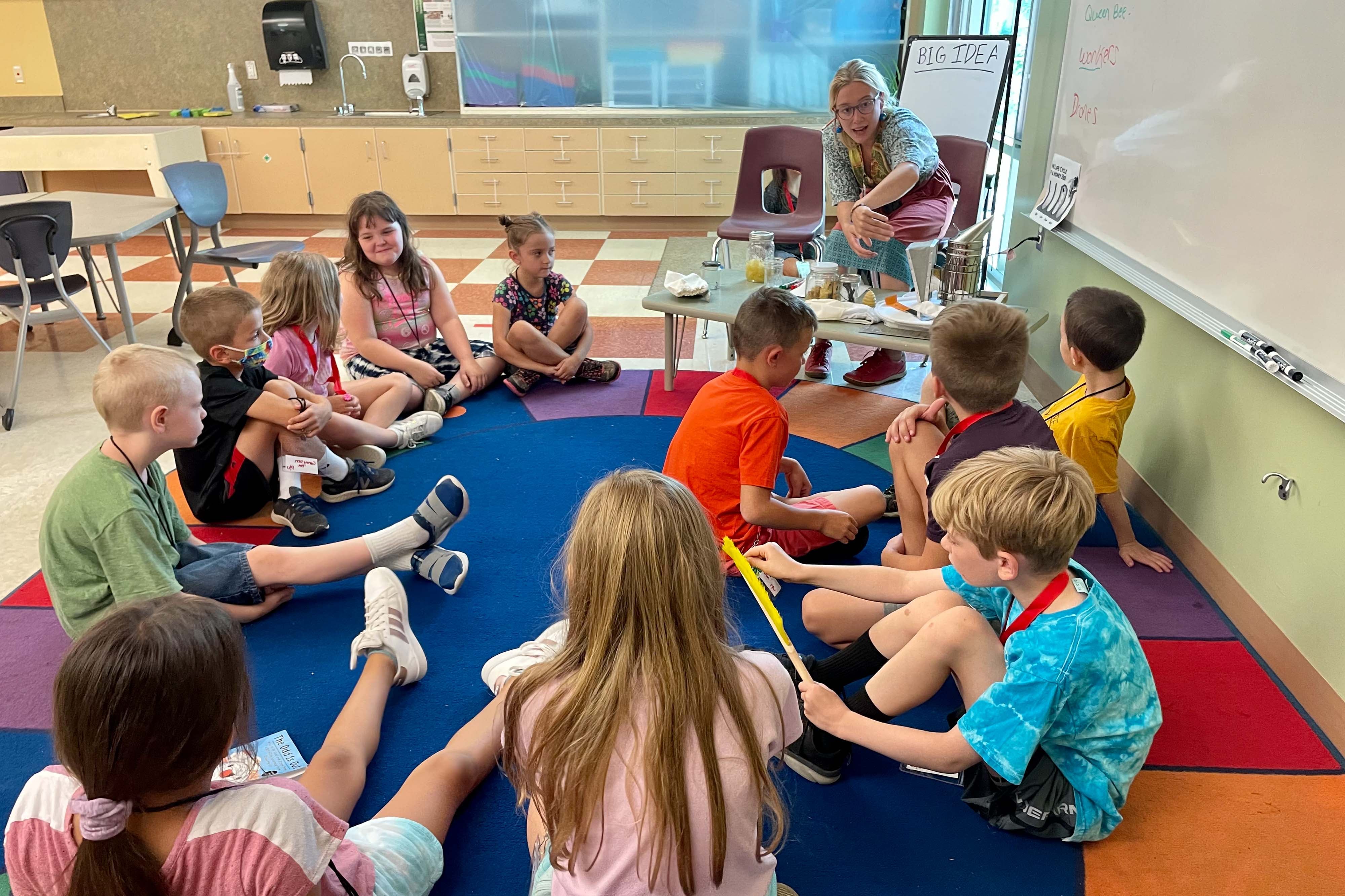Michigan students looking to have fun and catch up on missed learning this summer have many more choices than usual.
Districts have once again beefed up their summer programming, from credit recovery to camps focused on robotics and sports.
Fueled by federal COVID relief aid, the expanded summer school options come at the right time for students struggling with the academic impact of the pandemic. Many parents and students are looking for extra study time and opportunities to make up credits.
School districts planned to spend $179 million in COVID aid on summer programming over several years, according to budget proposals filed with the state in December. That’s on top of the smaller summer programs that most Michigan districts were offering before the pandemic.
What can parents expect from their districts this year?
In many cases, districts plan to keep the expanded summer programs they began offering last year, when most of the COVID relief dollars became available.
Many districts are still accepting registrations, and some will allow students to sign up after programming has started. Attendance generally isn’t mandatory, and most programs — with the exception of some enrichment camps — are free.
Here are examples of how some Michigan school districts are using their federal COVID funds for summer programming:
The Detroit Public Schools Community District will again offer its robust Summer Learning Experiences program this year.
Summer school in Detroit will run from July 11 to Aug. 4. It includes academic enrichment classes, STEM courses and recreational activities for students. The program will be conducted in person for most students, while students who currently attend DPSCD Virtual School will be allowed to take their classes online.
Some districts are using their share of COVID relief dollars to move away from summer programs that look like school, and offering extra learning time to as many students as possible.
Ypsilanti Public Schools rebranded its summer offerings Grizzly Learning Camp, rather than summer school. The camp features robotics and sports instruction, as well as credit recovery classes for students who need them. The district planned to spend $1.5 million in federal funds on the camp, which runs through August.
Grand Rapids Public Schools has more than 3,100 signed up for summer programs — about 20% of its total enrollment. That’s about the same number as last summer, but 2-1/2 times as many as pre-pandemic summers. The district is spending about $2.5 million on summer school, thanks to an influx of federal COVID relief money, compared with just under $1 million before the pandemic.
Fun is part of the curriculum. Students might, for example, play educational games on PlayStations, record podcasts about community heroes, or practice photojournalism, said Mel Atkins, district director of community and student affairs.
“We’re trying to disguise learning, so it doesn’t look like the school year,” Atkins said. “We’re not advocating for desks in rows. We’re looking for hands-on activities out in the community.”
The district is also offering online learning programs for children in kindergarten through 8th grade.
Other districts are narrowing their focus on students who need the most academic help.
Kalamazoo Public Schools’ summer school enrollment shrank from 2,500 last summer to 800 this year. That was by design, said Superintendent Rita Raichoudhuri, who wanted to focus on children identified by teachers as struggling the most.
“Last summer everyone needed extra support, because everyone was transitioning back into brick-and-mortar schools after being virtual for 18 months,” Raichoudhuri said. “The need was higher, and we needed the summer months to ease the transition. We were really glad we made that decision.”
Many smaller school communities are also offering more summer programming. Joseph K. Lumsden Bahweting Anishnabe Academy, a charter school in the Upper Peninsula with an emphasis on Anishinaabe culture and tradition, is enrolling more than one-third of its 630 students in an expanded academic summer school. The program will include field trips and two free meals a day. Activities will focus on environmental science and indigenous games and crafts, among other subjects. All students are eligible to participate.
Koby Levin is a reporter for Chalkbeat Detroit covering K-12 schools and early childhood education. Contact Koby at klevin@chalkbeat.org.
Tracie Mauriello covers state education policy for Chalkbeat Detroit and Bridge Michigan. Reach her at tmauriello@chalkbeat.org.
Ethan Bakuli is a reporter for Chalkbeat Detroit covering Detroit Public Schools Community District. Contact Ethan at ebakuli@chalkbeat.org.







